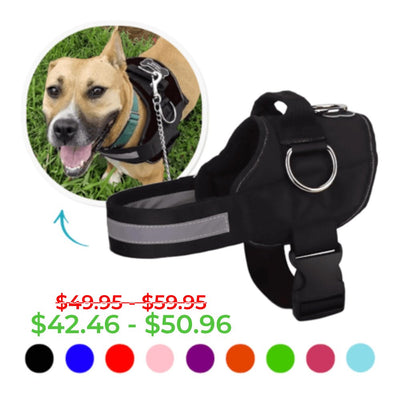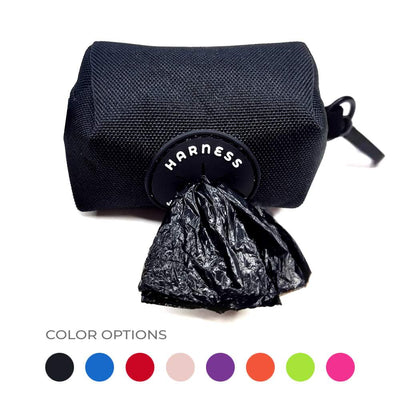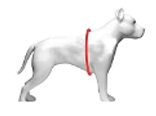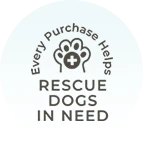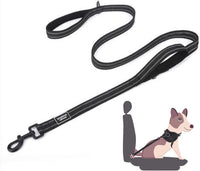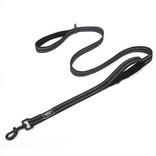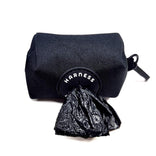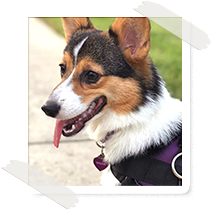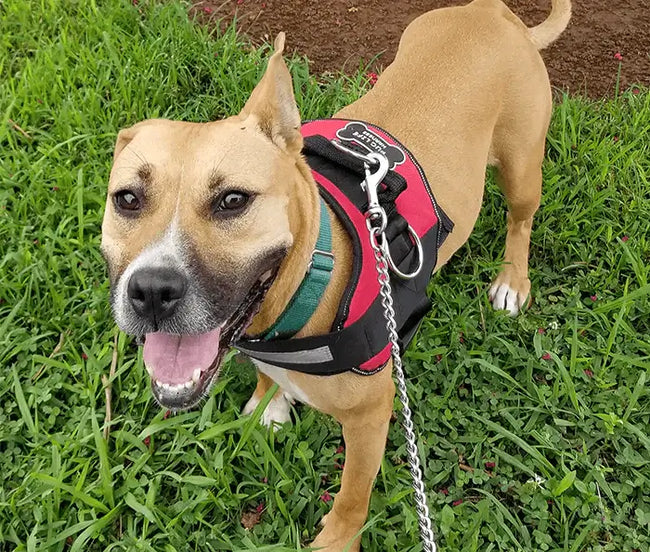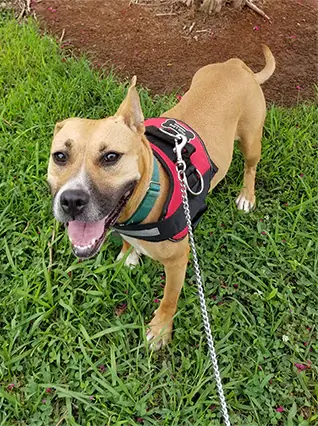Fall Dangers You Need to Watch Out For
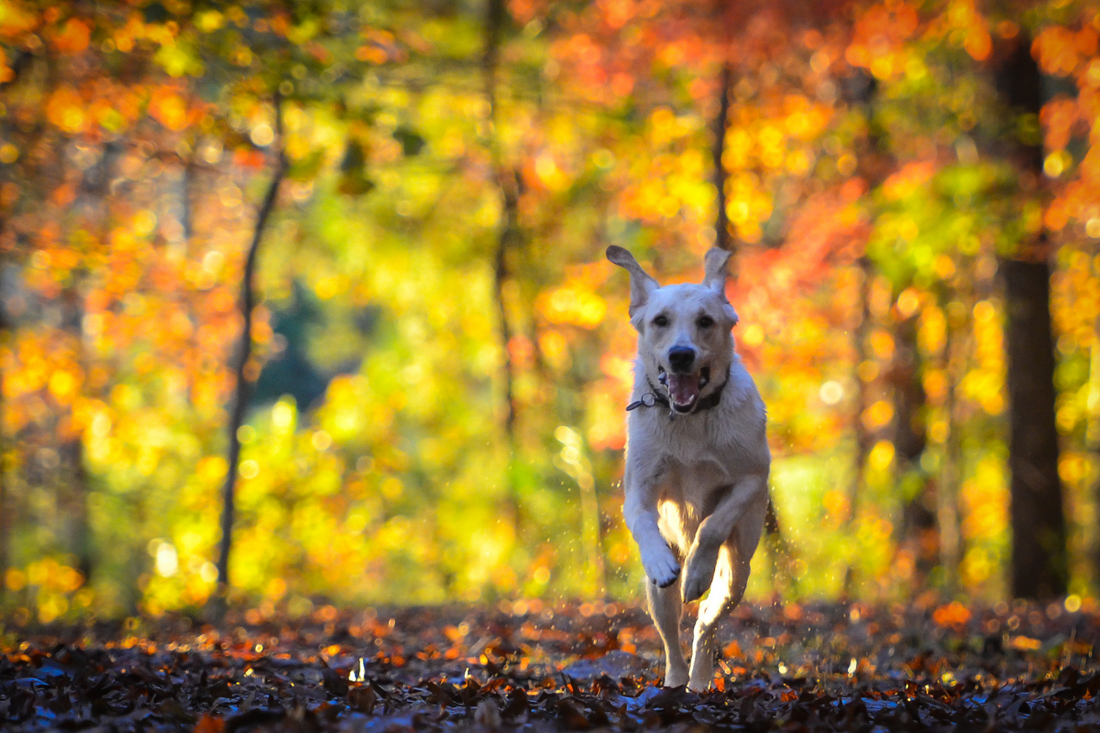
Fall is such a cozy season!
The crisp air, the smell of leaves, and the vibrant colors of autumn is slowing coming back.
As much as we love this season, there are a few things pet owners should be mindful of. Fall can bring some health risks for our furry friends, so it's important to stay aware.
Shorter Days, Less Light, More Danger

As much as we'd love an extra hour in the day, we lose daylight when the clocks fall back for Daylight Saving Time. The shorter days mean we're often out walking our dogs or doing other activities in the dark, which can be risky.
With reduced light, it’s harder for drivers to see people and animals, leading to more accidents. During this time there is a increase in pets getting hit by cars during the dim early morning or evening hours.
To keep your pets safe, always use a leash and harness when walking them. Make sure their ID tags are up to date, and consider getting them microchipped. This way, if they do manage to slip away, there's a better chance they'll come home safely.
Leaf Piles Aren’t as Fun as They Look

Fall leaves are beautiful, but cleaning them up can be a hassle. And it’s not just the work—leaf piles can pose some health risks for your pets.
Loud leaf blowers might scare your pet, causing them to bolt. Plus, gas-powered equipment can leak, and if your pet happens to lick oil or fuel off their paws or the ground, they could get sick.
Moist leaf piles can also harbor bacteria and mold. If your pet eats any of it, they could end up with an upset stomach, vomiting, or diarrhea. Also, burning leaves can release smoke and plant oils, which may irritate your pet’s eyes, nose, throat, and skin. So, it’s best to keep your pets inside while you’re doing yard work.
💡 BONUS TIPS: To prevent your dog from charging into a pile of leaves, make sure they're wearing a no-pull harness that gives you full control. This type of harness works great for all breeds and sizes, and the built-in handle lets you easily hold them back when needed. It's designed to fit snugly but comfortably, ensuring your dog won’t slip out or make a quick escape while still feeling secure.
Be Cautious of Fall Plants and Mushrooms

While fall brings beautiful seasonal plants, some can pose serious health risks to pets. One common culprit is the Chrysanthemum (or "mums"). These flowers may look lovely in your garden or porch, but if your dog or cat nibbles on the flowers, stems, or leaves, they could experience symptoms such as stumbling, skin inflammation, drooling, vomiting, or diarrhea. In severe cases, ingesting large amounts can even lead to more serious complications like loss of coordination or tremors.
Other fall plants to keep an eye on include:
- Meadow Saffron (Autumn Crocus): Highly toxic to pets, this plant can cause vomiting, diarrhea, kidney and liver damage, and even respiratory failure.
- Clematis: While a beautiful climbing plant, ingestion can result in excessive drooling, vomiting, and diarrhea in both cats and dogs.
And let’s not forget about mushrooms! As the season progresses, mushrooms often pop up in yards and parks. Although most wild mushrooms are non-toxic, some, like the deadly Amanita phalloides (known as the "death cap"), can cause severe liver damage, leading to life-threatening consequences for your pet. To be safe, don’t let your pets eat any mushrooms they come across.
For more information, don’t miss our blog on 7 Common Household Plants That Are Toxic to Dogs—it’s packed with essential tips to help keep your pets safe year-round!
Rodent Poison Hazards

As the weather cools down, rodents start looking for shelter, often making their way into our homes. While rodenticides can help keep them away, these poisons are also highly toxic to pets.
Common rodenticides contain Brodifacoum, which prevents blood from clotting properly. Symptoms of poisoning can show up in just a few days and include lethargy, loss of appetite, pale gums, and bloody stools.
Some poisons have Vitamin D3 (Cholecalciferol), which can cause kidney and liver failure, muscle weakness, seizures, and even death.
Since rodents can move poison to places your pets can access, it’s safer to call a professional pest control service instead of using over-the-counter poisons.
If you think your pet has been poisoned, contact your vet or an emergency vet hospital immediately. You can also call the ASPCA’s Poison Control Center (888-426-4435) or the Pet Poison Helpline (855-213-6680).
---
What you’ve just read is a sampling of blog posts we offer at Joyride Harness. We cover current events, informational posts, interviews, and more! You can find more content, including tips and tricks and how-tos for caring for your dog on our blog at this section.
Source: PetMd

